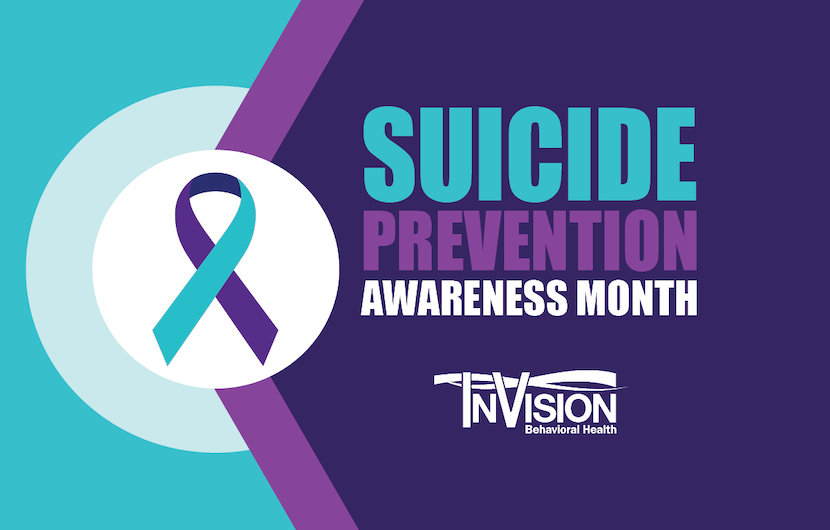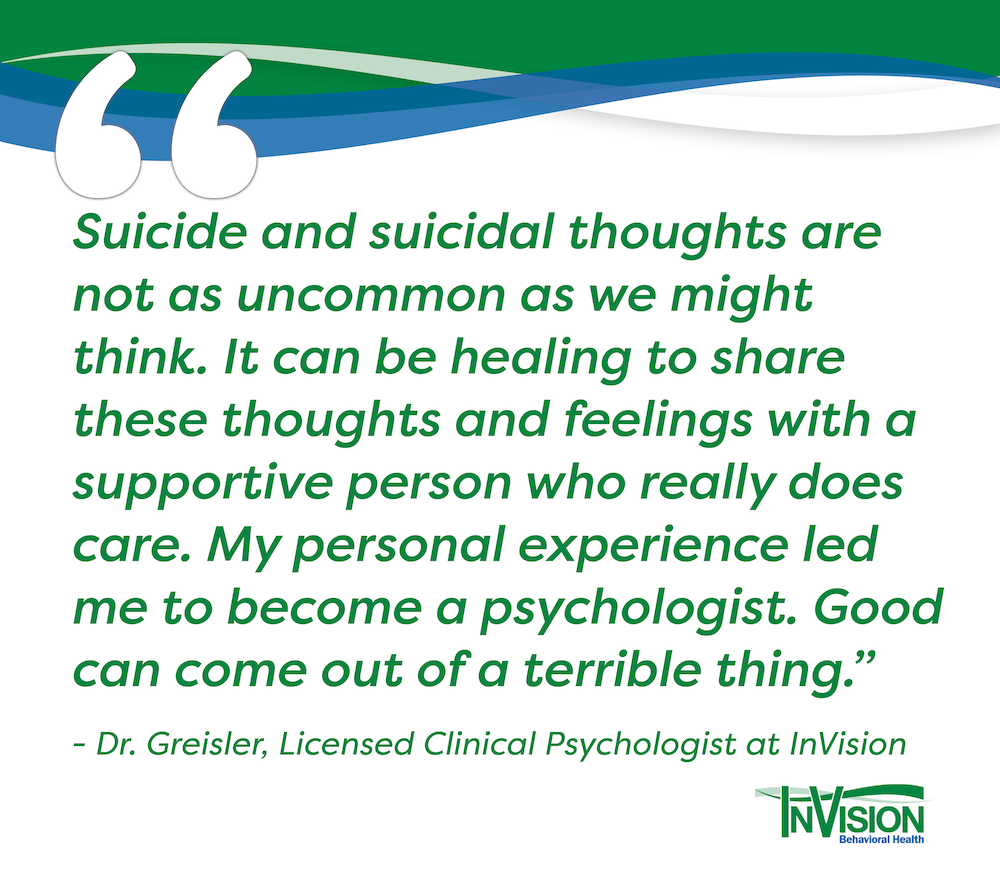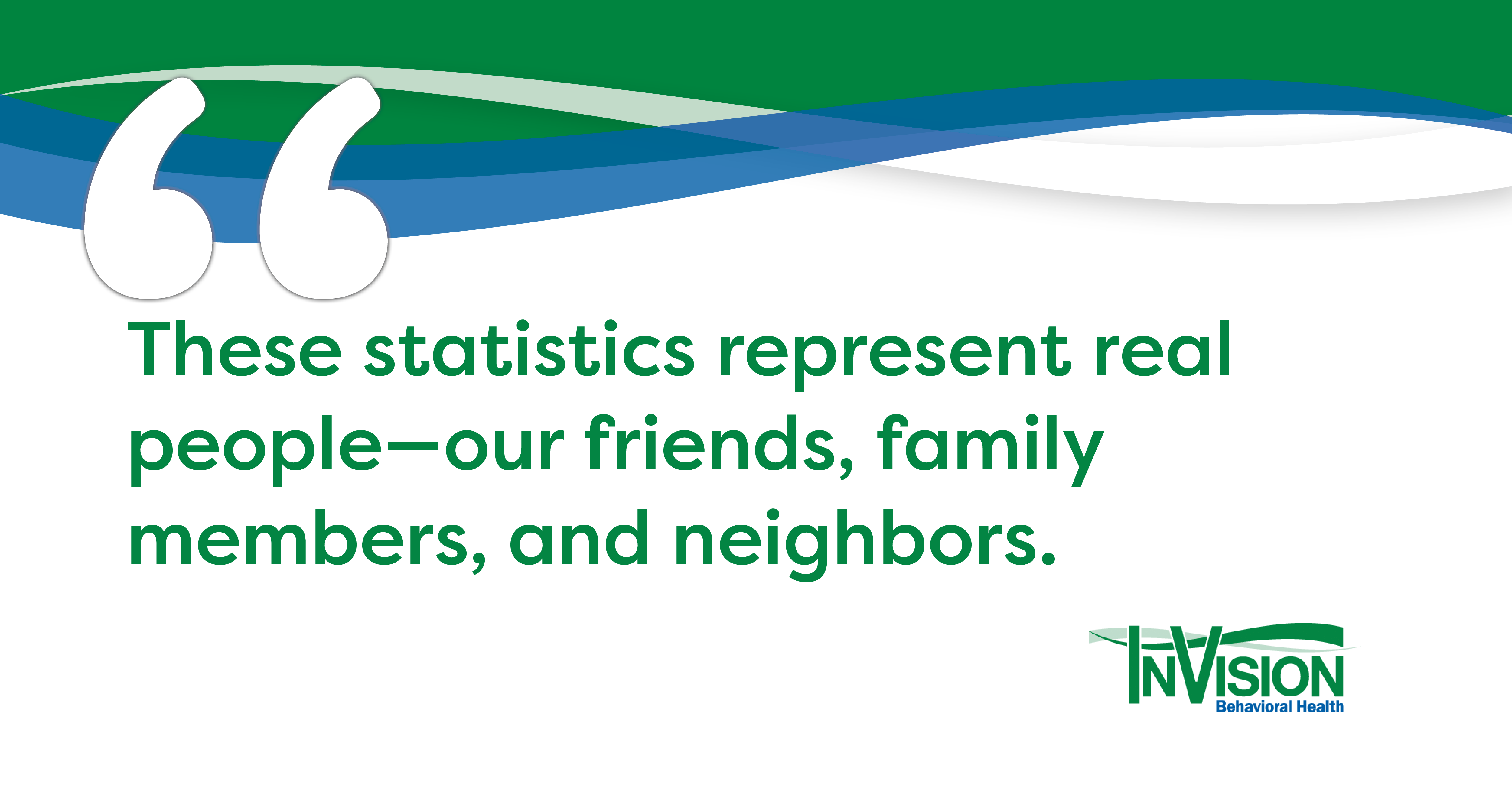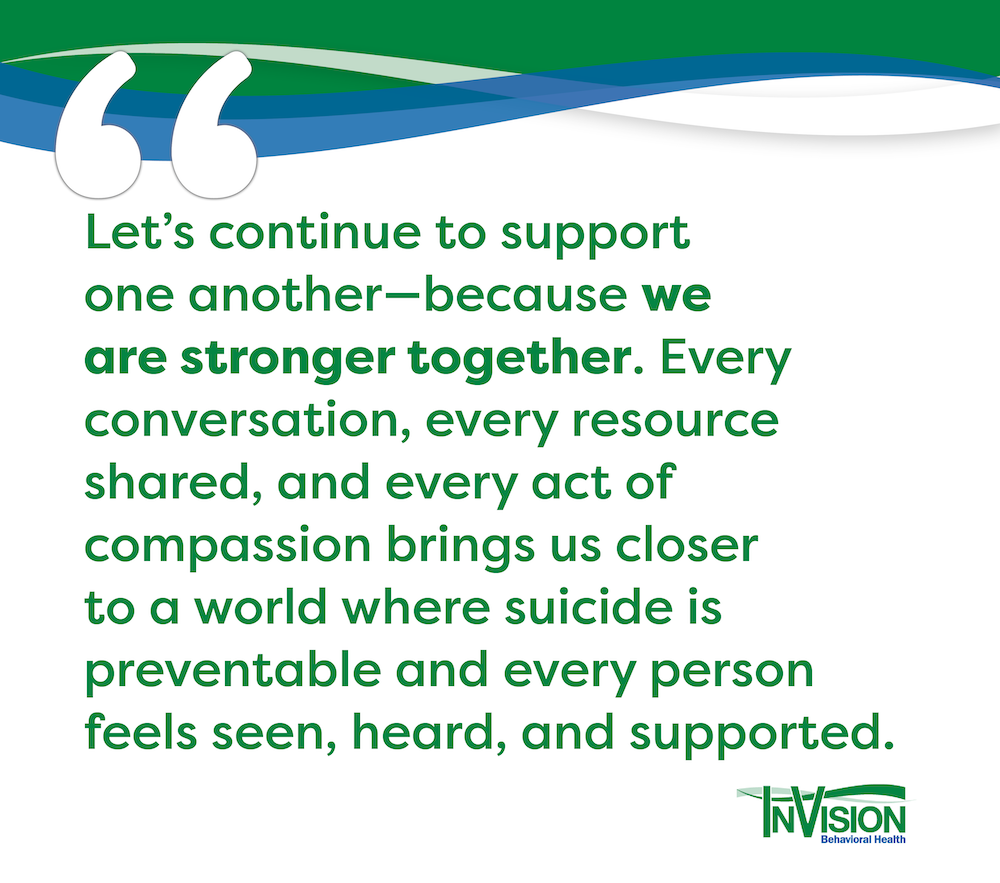The InVisionary

Why Suicide Awareness Matters
Suicide remains a deeply stigmatized issue, and that stigma can prevent people from seeking help. We can embrace awareness by:- Encouraging EVERYONE in a safe and comfortable way to open up about this pervasive issue.
- Breaking the silence: Talking openly about suicide does not encourage it, it can prevent it and encourage healing. Asking someone directly about suicidal thoughts can be lifesaving.
- Reducing shame and guilt: These emotions are frequently linked to suicidal ideation and self-harm. Safe, judgment-free spaces help individuals feel supported.
- Understanding systemic barriers: Navigating mental health systems can be overwhelming, especially for those in crisis. We must work to simplify access to care.
 Promoting accessible support: The 988 Suicide & Crisis Lifeline offers free, confidential support via call or text, 24/7.
Promoting accessible support: The 988 Suicide & Crisis Lifeline offers free, confidential support via call or text, 24/7.
Why Suicide Prevention Is Urgent
According to the Center for Disease Control and Prevention (CDC), suicide is a leading public health concern in the U.S. Over 49,000 people died by suicide in 2022—an increase from the previous year—making it the 11th leading cause of death. That is approximately one death every 11 minutes. Suicidal thoughts are common—in 2021, over 12 million adults had suicidal thoughts.Specific populations are disproportionately affected:
- American Indian/Alaska Native communities saw a 26% increase in suicide rates between 2018 and 2021.
- Black individuals experienced a 19% increase, and Hispanic individuals nearly 7%.
- People with disabilities are three times more likely to experience suicidal thoughts than those without disabilities.
- LGBTQ+ young people are more than four times as likely to attempt suicide than their peers.
 These statistics represent real people—our friends, family members, and neighbors. Suicide also affects loved ones. Twenty five percent of suicide-bereaved individuals receive no formal or informal support; often experiencing sadness, loneliness, confusion, helplessness, physical collapse, and sometimes even thoughts of suicide themselves.
These statistics represent real people—our friends, family members, and neighbors. Suicide also affects loved ones. Twenty five percent of suicide-bereaved individuals receive no formal or informal support; often experiencing sadness, loneliness, confusion, helplessness, physical collapse, and sometimes even thoughts of suicide themselves.
Recognizing Suicide Warning Signs
Suicidal thoughts can range from vague feelings of hopelessness to specific plans for self-harm. Warning signs include:- Expressing feelings of being a burden
- Social withdrawal or isolation
- Heightened anxiety or agitation
- Feeling trapped or in unbearable pain
- Increased substance use
- Seeking access to lethal means
- Sudden mood swings or rage
- Talking about death or posting suicidal thoughts online
- Giving away personal belongings
- Changes in sleep patterns
- Expressing hopelessness or despair
How You Can Make a Difference
Everyone has a role in suicide prevention. You can:- Start a conversation with someone who may be struggling.
- Share resources like the 988 Lifeline.
- Participate in awareness campaigns and community events.
- Educate yourself on mental health and suicide prevention.
The 988 Lifeline also provides support for bereaved loved ones in the aftermath of suicide.
Support from InVision Behavioral Health
At InVision Behavioral Health (IBH), we are committed to fostering a culture where mental health is a main priority and suicide prevention is a shared responsibility. IBH offers comprehensive mental health services tailored to your unique needs. Whether you are seeking support for yourself or a loved one, we are here to help you find hope and healing.The IBH clinicians receive specific training to assist individuals considering suicide or those affected by it. Most importantly, IBH
 providers may have had personal experience with suicide themselves.
providers may have had personal experience with suicide themselves.Contact us at behavioralhealth@invisionhs.org or by calling (724) 933-2961.
Let’s continue to support one another—because we are stronger together. Every conversation, every resource shared, and every act of compassion brings us closer to a world where suicide is preventable and every person feels seen, heard, and supported.

Comments (0)